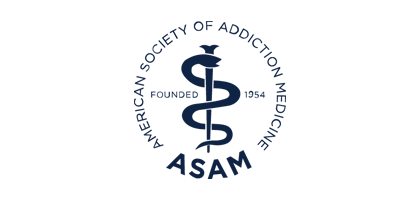Blog
Our Words Have the Power to Hurt or Heal
ASAM Member Helps Create Document Highlighting How Words Matter in Addiction Treatment
As a young girl, Hendrée E. Jones, PhD, often spent time in her mother’s classroom, getting to know students who had severe learning disabilities.
One girl she befriended happened to share the same birthday with her. That same girl also had fetal alcohol syndrome.
“I remember at age 9, looking at her and thinking, ‘If my mom drank then I might have been like her,’” said Dr. Jones, executive director of UNC Horizons and professor in the Department of Obstetrics and Gynecology School of Medicine at The University of North Carolina at Chapel Hill in Chapel Hill, North Carolina. “I also thought, ‘What can we do to help her?’ I can see her like it was yesterday. I just knew helping people like her was what I wanted to do.”
During that time with her mother’s students, Dr. Jones saw firsthand how words can hurt or help children living with disabilities. At UNC Horizons, she has witnessed the power of words to do the same in the lives of the mothers and children in its SUD treatment program.
Negative phrases – even those that are unintentionally hurtful – help sustain the stigma surrounding addiction and ultimately help create a barrier to addiction treatment access, said Dr. Jones, who received the R. Brinkley Smithers Distinguished Scientist Award in 2020 for her contributions in advancing the scientific understanding of addiction, its prevention and treatment.
Years ago, Dr. Jones met a woman who revealed how she had been crushed by the weight of people’s negative comments.
“She sat down, and said, ‘You know, Dr. Jones. Everybody sees the 10,000 things I'm not doing, but they don't see the 20,000 things am doing right,” Dr. Jones recalled.
“Treatment is hard and we don't have to make it as punitive; we can wrap our arms around people and have more compassion. That doesn't mean excusing their behavior. There's an accountability piece and a transparency piece. But we can still do that using affirming words and actions, and in a compassionate care way.”
Recently, Dr. Jones worked with NIDAMED to create a document to help providers and others incorporate more helpful words and phrases into their conversations with patients to reduce stigma and improve outcomes.
The document, Your Words Matter: Language Showing Compassion and Care for Women, Infants, Families, and Communities Impacted by Substance Use Disorder, offers background information and tips for providers to keep in mind while using person-first language. It also lists terms to avoid to reduce stigma and negative bias when discussing addiction with pregnant women and mothers.
In addition to receiving input from 35 staff members, Dr. Jones reviewed the document with 42 women in various stages of their addiction treatment at UNC Horizons. She said the women each shared stories of how words have hurt and helped them, and proposed phrases that could be helpful to other mothers receiving treatment.
“The words we use as providers of substance use disorder treatment services have the power to hurt or to heal,” Dr. Jones said. “This document helps providers, and perhaps patients and family members, learn words of recovery, more positive words, more neutral words that can help support people in the really tough journey that they have in treatment and in recovery.”
Some suggestions, such as replacing “user” with “patient,” are well known in addiction treatment. Other tips, such as substituting “abuse” with “misuse” or “self-medicating,” might not be as commonly known. According to the document, the term “abuse” has been found to have a high association with negative judgements and punishments.”
Dr. Jones said she hopes providers will download the document, post it in their offices, and work to establish a culture that promotes the use of encouraging language.
“It costs nothing to change our language, except for time and intention,” she said. “There’s a relationship between positive words and better patient outcomes. There’s a huge payoff and very little risk. What do we have to lose?”

